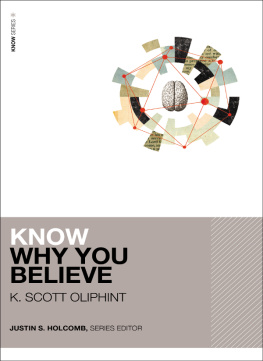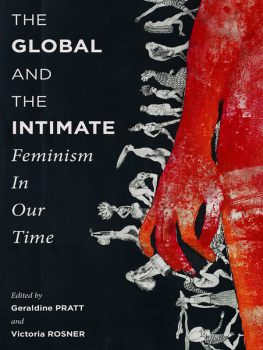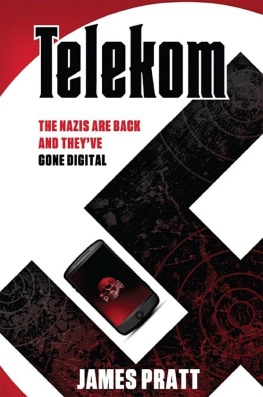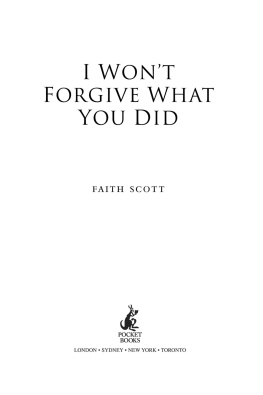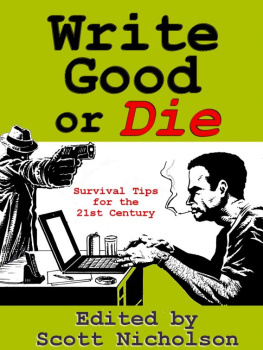Scott Pratt - In good faith
Here you can read online Scott Pratt - In good faith full text of the book (entire story) in english for free. Download pdf and epub, get meaning, cover and reviews about this ebook. genre: Detective and thriller. Description of the work, (preface) as well as reviews are available. Best literature library LitArk.com created for fans of good reading and offers a wide selection of genres:
Romance novel
Science fiction
Adventure
Detective
Science
History
Home and family
Prose
Art
Politics
Computer
Non-fiction
Religion
Business
Children
Humor
Choose a favorite category and find really read worthwhile books. Enjoy immersion in the world of imagination, feel the emotions of the characters or learn something new for yourself, make an fascinating discovery.

- Book:In good faith
- Author:
- Genre:
- Rating:4 / 5
- Favourites:Add to favourites
- Your mark:
- 80
- 1
- 2
- 3
- 4
- 5
In good faith: summary, description and annotation
We offer to read an annotation, description, summary or preface (depends on what the author of the book "In good faith" wrote himself). If you haven't found the necessary information about the book — write in the comments, we will try to find it.
Scott Pratt: author's other books
Who wrote In good faith? Find out the surname, the name of the author of the book and a list of all author's works by series.
In good faith — read online for free the complete book (whole text) full work
Below is the text of the book, divided by pages. System saving the place of the last page read, allows you to conveniently read the book "In good faith" online for free, without having to search again every time where you left off. Put a bookmark, and you can go to the page where you finished reading at any time.
Font size:
Interval:
Bookmark:
Scott Pratt
In good faith
PART I
Eight men and four women. A dozen citizens filing slowly past the defense and prosecution tables beneath the stern scrutiny of a white-haired judge. All wore the dazed look of people whove been forced to sit for days in a place theyd never been, listen to the words of men and women theyd never seen, and pass judgment on a fellow human being.
The gallery was sadly bereft of spectators. Misty Bell, a young female newspaper reporter with short chestnut hair and curious hazel eyes, sat dutifully holding her notebook on the front row to my left. Two seats to her right sat the victims son, an overweight, sad-looking man in his sixties with sagging jowls and receding gray hair that curled around his ears like smoke from a smoldering cotton ball. Aside from those two and me-I was sitting in the center of the back row-the gallery was empty.
The defendant, a wiry man named Billy Dockery, stood next to his lawyer at the defense table as the jury filed past. Dockery was gangly and in his mid-thirties. His dark hair snaked past his shoulders, framing a flat face that had maintained a perpetual smirk throughout the two-day trial. He wore civilized clothing-a dark gray suit, white shirt, and navy blue tie-but I knew he was anything but civilized. Beneath the veneer was a cruel and dangerous sociopath.
His lawyer was James T. Beaumont III, a longtime practitioner of criminal defense whom Id known casually for many years. Beaumont was in his late fifties and was somewhat of a celebrity in northeast Tennessee. He favored fringed buckskin jackets and string ties and wore a beige cowboy hat outside the courtroom. A long, light brown mustache and goatee, heavily specked with gray, covered his upper lip and chin. With his longish hair, clear blue eyes, and deep drawl, he reminded me very much of Wild Bill Hickok-at least the way they portrayed him in the movies.
Call your witness, sixty-year-old Judge Leonard Green said.
Beaumont nodded and stood. The defense calls Billy Dockery.
Dockery got up, ambled to the witness stand, and took the oath, the smirk still on his face. Id seen the proof in the case and knew Dockery should exercise his Fifth Amendment right to keep his mouth shut. Hed be a terrible witness. But I also knew that Dockery enjoyed the spotlight almost as much as he enjoyed thumbing his nose at the prosecution and torturing defenseless, elderly women.
After a few preliminary questions, Beaumont got to the point.
Mr. Dockery, Ill ask you this question on the front end. Did you kill Cora Wilson in the early-morning hours of November seventeenth?
Dockery leaned closer to the microphone.
No, sir, I did not. I did not have anything to do with her death. I was not nowhere near her place that night. I aint never hurt nobody and I aint never going to.
The sound of his voice made me cringe. Five years earlier, Dockery had been charged with murdering another elderly woman during a break-in at her home. His mother hired me to represent him, and after a trial, the jury found him not guilty and set him free. The next day, Dockery walked into my office and drunkenly confessed to me that hed murdered the woman. He offered me a five-thousand-dollar cash bonus, money he said hed stolen during the break-in. I threw him out of the office, along with the money, but since double jeopardy prevented them from trying him again, and since the rules of professional responsibility forbade me from telling anyone, I couldnt do a thing about it. When I read in the newspaper that he was about to go on trial for killing another woman, I wanted to be there to see his face when they sent him to the penitentiary for the rest of his life.
Did you know the victim? Jim Beaumont said from the podium in front of the witness stand.
Yes, sir. I done yard work for her sometimes, and I painted her house last year.
Ever have any problems with her?
No, sir. Not nary a one. Me and her got along like two peas in a pod.
Where were you that night, Mr. Dockery?
I was a-campin on the Nolichucky River moren two miles from her house.
In November?
Yes, sir. My mamas got a cabin down there. Its got a fireplace and all. I go there a lot.
Anyone with you?
No, sir. I was all by my lonesome.
Thank you, Mr. Dockery. Please answer the prosecutors questions.
It was the shortest direct examination of a criminal defendant Id ever seen, and it was smart. Up to that point, the prosecution had been able to establish only that Billy Dockery had done landscaping work for eighty-six-year-old Cora Wilson. They established that Dockery had camped along the Nolichucky River about two miles from Ms. Wilsons home the night she was beaten and tortured to death, a fact the defense did not dispute. They established that a length of nylon rope found around Ms. Wilsons neck was the same kind of rope found in the back of Billy Dockerys truck. The prosecutors expert witness could not go so far as to say the rope was an exact match, only that it was made of the same material, of the same weave and circumference, and manufactured by the same company. Unfortunately for the prosecution, the defense subpoenaed an executive from the company that made the rope, and he testified that more than fifty thousand feet of that very same rope had been sold within a twenty-five-mile radius of the courthouse in the past five years.
The prosecutions star witness in the case, a seventeen-year-old named Tommy Treadway, had initially confessed to breaking into the house with Dockery that night but refused to sign a statement. Treadway told the police that he left when Dockery began to torture Ms. Wilson. But Treadway was released on bond after he agreed to testify against Dockery and wound up driving his car off the side of a mountain in Carter County a month before the trial. His death was ruled an accident.
The states only other witness-besides the routine information given by the cops and the medical examiner- was a degenerate drunkard named Timmons who said hed overheard Billy Dockery say that Cora Wilson kept cash in her house and that he might go get it some night. Beaumont had already destroyed the witness on cross-examination, forcing him to admit that his two primary activities as an adult had been drinking whiskey and stealing other peoples identities so he could afford to drink more whiskey.
Now the assistant district attorney had his shot at the defendant. It was usually a prosecutors dream, but Assistant District Attorney Alexander Dunn had been aloof and distracted. His case was so weak he should have dismissed it and waited to see whether any more evidence could be developed, but his ego had apparently driven him to trial.
Dunn, in his early thirties, was wearing a tailored brown suit over a beige shirt. A kerchief rose from the pocket of his jacket, and expensive Italian loafers covered his feet. He stood before Dockery and straightened his silk tie.
Isnt it true, Mr. Dockery, that you and another individual broke into the victims home around two a.m. on the morning of November seventeenth?
No.
It was an inauspicious beginning, to say the least, and I sank deeper into my seat. Dunn had been ordered by the judge not to mention the dead witness, and the jury was sure to wonder why, if there was a codefendant, he wasnt on trial at the same time or testifying for the state.
And isnt it true, Mr. Dockery, that you beat and tortured the victim in an effort to force her to tell you where her cash was hidden?
No, it aint true, and you aint got no fingerprints, no blood, no hair, no witnesses, no nothin to prove I was there.
But you did tell Mr. Timmons that the victim kept cash in her home and that you intended to steal it, didnt you?
I never said no such thing. Timmons aint nothing but a drunk and a liar. He was probably just looking for some reward money so he could buy whiskey.
Font size:
Interval:
Bookmark:
Similar books «In good faith»
Look at similar books to In good faith. We have selected literature similar in name and meaning in the hope of providing readers with more options to find new, interesting, not yet read works.
Discussion, reviews of the book In good faith and just readers' own opinions. Leave your comments, write what you think about the work, its meaning or the main characters. Specify what exactly you liked and what you didn't like, and why you think so.


